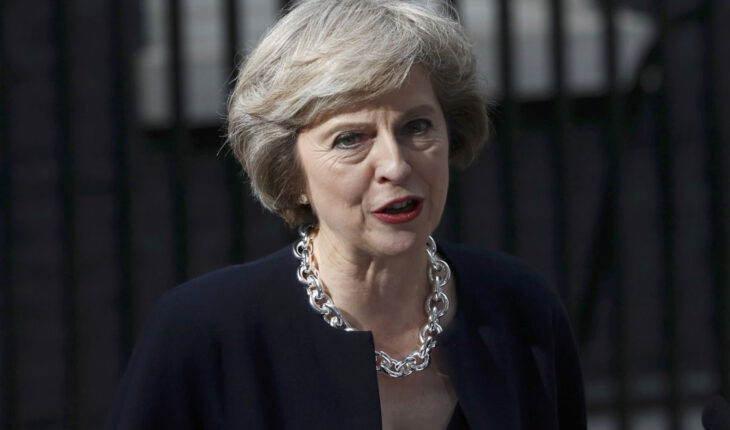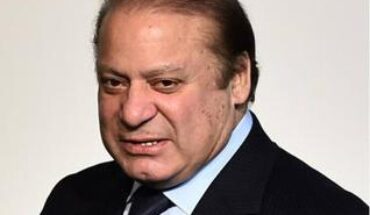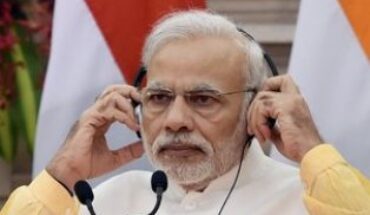LONDON: British Prime Minister Theresa May on Wednesday won the overwhelming backing of MPs to hold a snap election on June 8, which she said is in the country’s “national interest” and will strengthen her hand in the complex Brexit negotiations.
After debating the motion put forward by May in the House of Commons, 522 of the 650 sitting MPs voted in favour of the June 8 election, passing the threshold of two-thirds needed to approve the plan.
Thirteen voted against the motion. The Parliament’s backing for snap polls plunged Britain back into political uncertainty weeks before the start of negotiations on leaving the European Union. May, 60, had stunned her allies as well as opponents when she called for a snap poll yesterday. There was a short debate on the motion in the House of Commons to over-ride the Fixed Terms Parliaments Act,which would have seen an election being held only in 2020. Opening the debate, May said a snap general election was “in our country’s national interest” and urged MPs to do the “right and responsible thing” and back an early poll. She told MPs: “There are three things a country needs, a strong economy, strong defence and strong, stable leadership. That is what our plans for Brexit and our plan for Britain will deliver, and that is what the Conservative Party will be offering at this election.” Labour leader Jeremy Corbyn said: “We welcome the general election but this is a Prime Minister who promised there wouldn’t be one, a Prime Minister who cannot be trusted. “She says it’s about leadership, yet is refusing to defend her record in television debates and it’s not hard to see why.” The vote came soon after former UK Chancellor George Osborne announced that he intends to quit as an MP. He had come under fire for taking on a role at the ‘Evening Standard’ newspaper while still being an MP for Tatton. “I am stepping down from the House of Commons – for now. But I will remain active in the debate about our country’s future and on the issues I care about,” he said. Earlier, May hadcalled on the electorate to trust her on her decision to call an early general election on June 8 as it will strengthen her hand in the complex Brexit negotiations. “I trust the British public. I’m asking them to put their trust in me and if they do that, if they give me a mandate for these negotiations for the plan for Brexit that the Government has, the plan for a stronger Britain beyond Brexit that we have, then I think that will strengthen our hand,” May told BBC. “I genuinely came to this decision reluctantly having looked at the circumstances and having looked ahead at the process of negotiation. I want this country to be able to play the strongest hand possible in those negotiations and be in a position to get the best possible deal. That is in our long- term interest. That is what this is about,” she said. May has framed the election, in which her ruling Conservative party could win as many as 100 extra seats,as a way of securing the best possible Brexit deal for the UK. Political pundits in Britain are also attributing the move as a direct attack on a weakened Opposition, the Labour party under Jeremy Corbyn’s leadership. May, who had taken charge as Prime Minister just weeks after Britain’s voted to leave the European Union in June 2016, had repeatedly dismissed the idea of an early election. However, on Tuesday she said she had a “change of heart” in order to bring unity within the political corridors of Britain. She has categorically denied the June 8 poll will be a sort of re-run of last year’s referendum, saying there could be no “turning back” on the Brexit decision but if she was re-elected, it would be a vote of confidence in her government’s central goals of gaining “control” of the UK’s laws, borders and money. May has also ruled out taking part in TV debates with Corbyn and her other political opponents, saying she believed elections were all about “getting out and about and meeting voters” and, in her words, “knocking on doors”. The European Union’s “real political” negotiations on Britain’s exit from the bloc will start after the snap British election in June, an EU spokesman said today. “The real political negotiations on article 50 with the UK will start after the elections foreseen for the 8th of June,” European Commission spokesman Margaritis Schinas told a press conference.–PTI






